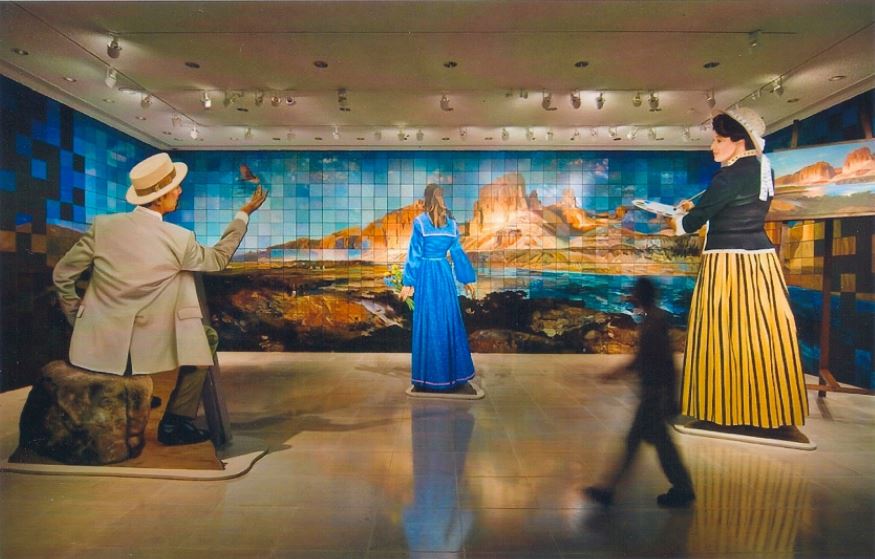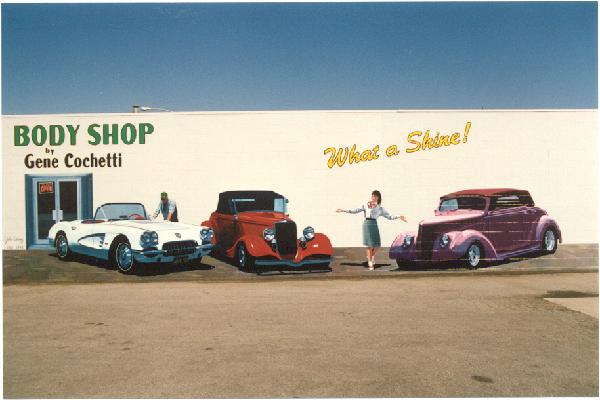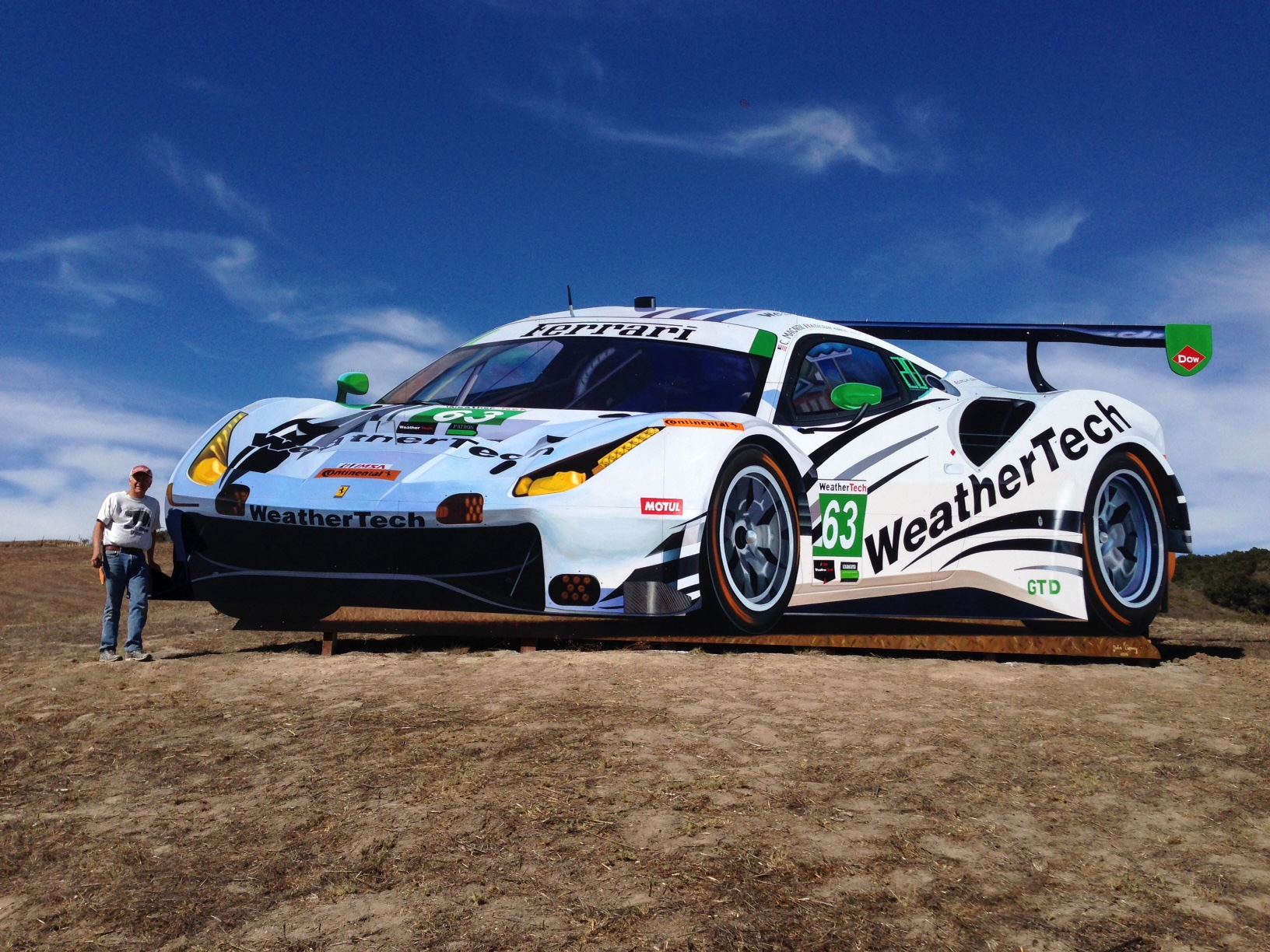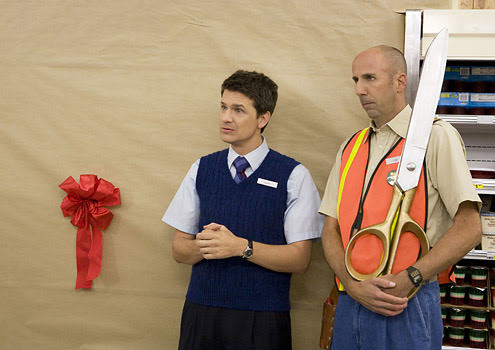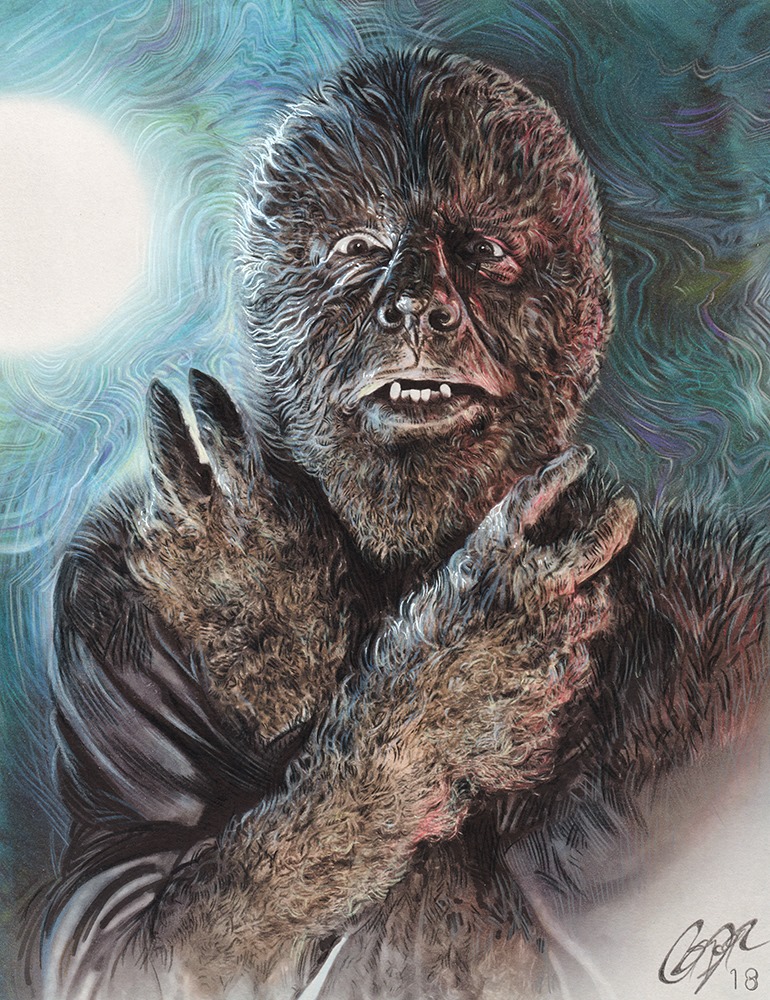
Rudolf Karl Wütherich is best known for being the last passenger of James Dean. Long before that fateful evening, September 30, 1955, Rolf had proven himself to be a man of many talents. While in the military he served as a Luftwaffe glider pilot, paratrooper, and an aircraft mechanic. After his time in service he went on to work in the Daimler-Benz (Mercedes) factory racing department before going on to become the second employee at the Porsche racing department where he worked as a factory team member at countless races before being sent by the factory to the United States in April, 1955 to work as a field engineer. He went on to meet James Dean at the Bakersfield races later that year. While much is known about the events that came later, there is little know about Rolf himself. To find a little more about who he was as an individual we sat down with his son, Bernd as he recalls what his father was like.
(Author’s note: This interview was written in English, on September 30, 2020 while visiting Fairmount, Indiana, and answered in German. I have included both versions.)

What are some of your earliest memories of your father?
My first memory concerns a day when I was about 4 years old. I no longer knew exactly whether my parents were divorced or were close.
There were three of us in his Porsche. In front, of course, my parents, and I in the middle in the back. Suddenly I see my father trying to take my mother’s hand. He didn’t want to lose my mother. But she didn’t return the gesture and pushed his hand aside. At that moment I understood that there was nothing to be done: their marriage was over. My father understood it too, he didn’t say another word. There was no turning back.

Are there any things about him that stand out most clearly in your mind today?
When I think of him today, he always seems like a lonely figure.
He was very rarely funny. He was often in a bad mood, and that sometimes scared me when we met briefly. I think he was very sensitive and introverted. But, basically he was also very sad and melancholy. I didn’t know then – in the 1960’s – that he was suffering from depression, and as it was later explained, shortly after the accident with James Dean.
But my father was also very ironic, and at his best he was a good buddy to joke with. He was very dynamic; he could work on a car for hours. When it came to his job, he could also be very, ambitious. He knew how good he was.
What was he like as a father?
When my parents were together, I was little and my father was almost never home. In any case, fatherhood was not his priority. That applied to the cars and the engines. I only know that he was very proud of me, like most fathers were with their sons. Unfortunately, we rarely saw each other. When I went to Italy when I was 10, our contacts became even less frequent. I might have met him five or six times in the 1970’s. Every time he stopped by his parents, whom I was with on vacation, and took me with him. He tried his best to speak to me, but I was terrified of his outbursts and I was also uncomfortable with his presence.
We saw each other too little, too far apart, and so we could never really got closer. I wanted to make up for everything when I got bigger, but I didn’t have time after he died so early.

Did he ever speak of what it was like growing up in Germany when he did?
Unfortunately, my father never spoke to me about his childhood.
Did he ever mention what it was like for him coming from Germany to the United States?
He also never spoke to me about his stay in the States or his impressions.
Are there any memories from his life that he shared with you that have stuck with you?
When I was little he went to visit his friend Eugen Böhringer with me, with whom he finished second in the 1965 rally in Montecarlo. At that time, I noticed how important friends were to him. He always respected his friends, especially because most racing drivers were like him, and he knew how easy it was to die back then. Most of all, he suffered from the death of Günter Klass in a race in Florence. They had driven several races together, especially the 1966 Montecarlo Rally. My grandfather, my father’s father, and I went to the Klass ‘funeral at that time. My father couldn’t be there. But, as I said, we didn’t talk to each other much. And he never told me stories from his life. To get to know him better, I looked through his photos at my grandparents’ house. Almost like a boy scout, I searched for his tracks. I never had the courage to ask him questions.

What would you say is the most important thing you learned from him?
The most important thing I learned from him was honesty He was almost too honest, he always said what he thought. And sometimes that wasn’t wanted. He was always sincere and loyal to his friends. I kept this attitude. He was also very generous. And once, shortly before his death, he wrote me a letter. Where he always advised me to think with my own head and never let others distract me from my goal. Yes, he was ambitious and stubborn too, he often wanted his head through the wall. And yes, I’m a little bit like that, I hardly let anyone talk me out of what I’m convinced of.
What do you admire about him most?
My father had courage in every way. At the age of seventeen he went into the Second World War, at a time when the Nazis had already lost the war. He was a parachutist and that took courage. And when it came to going to America, he took the opportunity to broaden his horizons. Maybe he was sent to the USA by Porsche because he was the only bachelor. They got married early in the 1950’s and all the other Porsche mechanics already had a wife and children. My father was a dreamer, he always wanted to leave, no matter where. He was curious and had no pre-stress. He read Raymond Chandler and dreamed of this wide country with the big cities. Even then it was too tight in Stuttgart. He wanted to go around the world. And of course, I admire his talent as a mechanic etc. Racing driver. He was born for engines. He only needed to hear an engine to know immediately what was wrong. He was a blessed mechanic. With motors he had the same relationship as an artist with his canvas. And he could make an entire car from nothing, including the body. He was just the best.

What would you say were some of his most positive traits?
I already mentioned it. He was extremely talented and worked hard for hours. Far from his job, he was very charming and he knew how to have fun. He could also be very deep and sensitive. He thought a lot and I often saw dark shadows on his face. When he started brooding, he usually became sad and pessimistic. But this is another story.
In reality he was shy, he never forgot where he came from: a small German provincial town. I am of course referring to his place of birth, Heilbronn, where he lived in his childhood and youth and before his family moved to Stuttgart.
Is there anything in particular you’d like the world to know about him?
All of my father’s friends always said there was a Rolf before the accident with James Dean and a Rolf after the accident. The accident has transformed him mentally and physically. My father could never really deal with this bad experience. After the accident he was hated and beaten up by some of the Dean fans. He felt so complicit in Dean’s death, even though he wasn’t to blame. I think his best time was between 1960 and 1965. It was in 1960 when he met my mother at Porsche, she married and after a short time also had a son from her. During this time he also had his greatest sporting success. At that time he was in control of his life again. But after the divorce from my mother, he lost his balance and had problems again.
But he was a loyal person, he was always ready when a friend needed him. He was obsessed with engines and when he went to America he had a bright future in sight. Unfortunately, it turned out differently: the accident would be decisive for the rest of his life; he became self-destructive over time, as well as destroying his best relationships.

How would you like the world to remember him?
I cannot say. My father was not a public figure. To judge him you have to have known him. Otherwise it is just fantasies. It would be enough for me if people remembered him as an exceptional mechanic, a talented racing driver, a good friend and a sensitive person. But, frankly, I think very few people remember my father. Time takes away all memories. And I think the world doesn’t worry about my father. And maybe it’s better that way.
Is there anything you’d like to say in closing?
My father died at the age of 53. I was just 20. Today I am older than my father, and over time I have understood many things better. We never had a really mature dialogue. We didn’t have the time.
I already mentioned it: I miss him, I wanted to get to know him better and spend more time with him.
In the last years he had been alone. And that still hurts me a lot.
Maybe I could have helped him, probably not. But it would have been nice to see him one last time.

Rudolph Karl Wutherich ist bekannt als letzter Passagier von James Dean. Lange vor diesem schicksalhaften Abend, dem 30. September 1955, hatte sich Rolf als ein Mann mit vielen Talenten erwiesen. Während seiner Militärzeit diente er als Luftwaffen-Segelflugzeugpilot, Fallschirmjäger und Flugzeugmechaniker. Nach seiner Dienstzeit arbeitete er in der Werksrennabteilung von Daimler-Benz (Mercedes), bevor er als zweiter Mitarbeiter in der Porsche-Rennabteilung arbeitete, wo er als Mitglied des Werksteams bei unzähligen Rennen arbeitete, bevor er von der Fabrik in die Vereinigten Staaten im April 1955, um als Feldingenieur zu arbeiten. Später in diesem Jahr traf er James Dean bei den Bakersfield-Rennen. Während viel über die Ereignisse bekannt ist, die später kamen, ist wenig über Rolf selbst bekannt. Um ein bisschen mehr darüber herauszufinden, wer er als Individuum war, setzten wir uns mit seinem Sohn Bernd zusammen, der sich daran erinnert, wie sein Vater war.
Was sind einige Ihrer frühesten Erinnerungen an Ihren Vater?
Meine erste Erinnerung betrifft einen Tag an dem ich ungefähr 4 wahr. Ich weiss nicht mehr genau ob meine Eltern schon geschieden waren oder nahe dran waren.
Wir waren zu dritt in seinem Porsche. Vorne natürlich meine Eltern, und ich hinten in der Mitte. Auf einmal sehe ich wie mein Vater versucht die Hand meiner Mutter zu nehmen. Er wollte meine Mutter nicht verlieren. Aber sie erwiderte die Geste nicht und schob seine Hand beiseite. In diesem Moment verstand ich, dass da nichts mehr zumachen war: Ihre Ehe war aus. Mein Vater verstand es auch, er sagte kein Wort mehr. Es gab kein zurück mehr.
Gibt es Dinge an ihm, die Ihnen heute am deutlichsten auffallen?
Wenn ich heute an ihn denke, kommt er mir immer wie eine einsame Figur vor.
Er war sehr selten lustig. Oft war er schlechter Laune, und das machte mir manchmal Angst als wir uns mal kurz sahen. Ich glaube er war sehr sensibel und introvertiert.
Aber im Grunde genommen war er auch sehr traurig und melancholisch. Ich wusste damals – in den Sechzigerjahren – nicht dass er an Depressionen litt, und wie man mir später erklärte, das schon kurz nach dem Unfall mit James Dean.
Aber mein Vater war auch sehr ironisch, und in seinen besten Zeiten war er ein guter Kumpel mit dem man auch scherzen konnte.
Und er war sehr dynamisch; er konnte stundenlang an einem Wagen arbeiten. Was seinen Beruf betraf, konnte er auch sehr ehrgeizig sein. Er wusste wie gut er war.
Wie war er als Vater?
Als meine Eltern noch zusammen waren, war ich noch klein und mein Vater war fast nie Zuhause. Auf jeden Fall war die Vaterschaft nicht seine Priorität. Die galt den Autos und den Motoren. Ich weiss nur dass er sehr stolz auf mich war, wie die meisten Väter mit ihren Söhnen. Leider sahen wir uns selten. Als ich mit 10 nach Italien ging, wurden unsere Kontakte noch seltener. In den Siebzigerjahre bin ich ihmvielleicht fünf- oder sechsmal begegnet. Jedesmal kam er bei seinen Eltern vorbei, bei denen ich während den Ferien war, und nahm mich mit. Er versuchte sein Bestes um mit mir zu sprechen, aber ich hatte wahnsinnig Angst vor seinen Wutausbrüchen, und zudem fühlte ich mich nicht wohl in seiner Präsenz.
Wir sahen uns zu wenig, mit zu großen Abständen, und so konnten wir uns nie richtig näher kommen. Ich wollte alles nachholen wenn ich mal größer wurde, aber dazu blieb mir keine Zeit nach dem er so früh starb.
Hat er jemals darüber gesprochen, wie es war, in Deutschland aufzuwachsen, als er es tat?
Leider hat mein Vater nie mit mir über seine Kindheit gesprochen.
Hat er jemals erwähnt, wie es für ihn war, aus Deutschland in die USA zu kommen?
Auch über seinen Aufenthalt in den States und seine Eindrücke hat er mit mir nie gesprochen.
Gibt es irgendwelche Erinnerungen aus seinem Leben, die er mit Ihnen geteilt hat und die bei Ihnen geblieben sind?
Als ich noch klein war besuchte er mit mir seinen Freund Eugen Böhringer, mit dem er 1965 bei der Rally von Montecarlo Zweiter wurde. Ich merkte damals wie wichtig für ihn die Freunde waren. Er hat seine Freunde immer respektiert, vor Allem weil die meisten Rennfahrer waren wie er, und er wusste wie leicht man damals sterben konnte. Vor Allem litt er unter dem Tod von Günter Klass bei einem Rennen in Florenz.
Sie hatten mehrere Rennen gemeinsam gefahren, vor Allem die Rally von Montecarlo 1966. Mein Großvater, Vater meines Vaters, und ich gingen damals zu Klass‘ Beerdigung. Mein Vater konnte nicht dabei sein.
Aber, wie gesagt, wir sprachen nicht viel miteinander. Und er hat mir nie Geschichten aus seinem Leben erzählt. Um ihn besser zu kennen, durchsuchte ich seine Fotos bei meinen Großeltern. Fast wie ein Pfadfinder suchte ich nach seinen Spuren. Ich habe nie den Mut gehabt ihm Fragen zu stellen.
Was ist Ihrer Meinung nach das Wichtigste, was Sie von ihm gelernt haben?
Das Wichtigste was ich von ihm gelernt habe ist Ehrlichkeit. Er war fast zu ehrlich, er sagte immer was er dachte. Und manchmal war das nicht erwünscht. Mit seinen Freunden war er immer aufrichtig und loyal. Diese Einstellung habe ich behalten. Er war auch sehr großzügig. Und einmal, kurz vor seinem Tod, schrieb er mir einen Brief. Wo er mir riet immer mit meinem eigenen Kopf zu denken, und mich nie von anderen von meinem Ziel ablenken zu lassen. Ja, er war ehrgeizig und auch dickköpfig, er wollte oft mit dem Kopf durch die Wand. Und ja, ich bin auch ein bisschen so, ich lasse mir kaum was ausreden von dem ich überzeugt bin
Was bewundern Sie an ihm am meisten?
Mein Vater hatte Mut, in jeder Hinsicht. Als 17 Jähriger ging er in den Zweiten Weltkrieg, zu einem Zeitpunkt wo die Nazis den Krieg schon verloren hatten. Er war Fallschirmspringer, und schon dazu gehörte Mut. Und als es dazu kam nach Amerika zu gehen, nutzte er die Möglichkeit um seine Horizonte zu erweitern. Womöglich wurde er von Porsche in die USA geschickt weil er der einzige Junggeselle war. In den 50er Jahren heiratete man noch früh, und alle anderen Porsche Mechaniker hatten schon Frau und Kindern. Mein Vater war ein Träumer, er wollte immer fort, egal wo.
Er war neugierig und hatte keinen Vorstress. Er las Raymond Chandler und träumte von diesem weiten Land mit den großen Städten. Schon damals war es in Stuttgart zu eng. Er wollte um die Welt gehen.
Und natürlich bewundere ich sein Talent als Mechaniker usw. Rennfahrer. Er wurde für Motoren geboren. Er musste nur einen Motor hören, um sofort zu wissen, was los war. Er war ein gesegneter Mechaniker. Mit Motoren hatte er die gleiche Beziehung wie ein Künstler mit seiner Leinwand. Und er konnte aus dem Nichts ein ganzes Auto machen, einschließlich der Karosserie. Er war einfach der Beste.
Was würden Sie sagen, waren einige seiner positivsten Eigenschaften?
Ich habe es schon erwähnt: er hatte ein Riesentalent, und er arbeitete mit Fleiß stundenlang. Fern von seinem Beruf, war er sehr charmant und wusste wie man sich amüsiert.
Er konnte auch sehr tief und sensibel sein. Er dachte viel, und oft sah ich dunkle Schatten in seinem Gesicht. Wenn er zu grübeln anfing, wurde er meist traurig und Pessimist. Aber das ist eine andere Geschichte.
In Wirklichkeit war er schüchtern, er vergaß nie von wo er kam: eine kleine deutsche Provinzstadt. Ich beziehe mich natürlich auf seinen Geburtsort, Heilbronn, wo er in seiner Kindheit und Jugend lebte, und bevor seine Familie nach Stuttgart zog.
Gibt es etwas Besonderes, das die Welt über ihn wissen soll?
Alle Freunde meines Vaters haben immer gesagt dass es einen Rolf bevor dem Unfall mit James Dean, und einen Rolf nach dem Unfall gab.
Der Unfall hat ihn seelisch und körperlich verwandelt. Mein Vater konnte diese schlimme Erfahrung nie richtig verarbeiten. Nach dem Unfall wurde er von Teil der Dean Fans gehasst und verprügelt. Er fühlte sich so mitschuldig an Deans Tod, obwohl er gar keine Schuld hatte.
Ich glaube dass seine schönste Zeit zwischen 1960 u. 1965 war, als er bei Porsche meine Mutter kannte, sie heiratete und nach kuzer Zeit auch einen Sohn von ihr bekam. In dieser Zeit hatte er auch seine größte sportliche Erfolge. Damals hatte er sein Leben wieder in der Hand. Aber nach der Scheidung von meiner Mutter, verlor er wieder sein Gleichgewicht und hatte wieder Probleme.
Aber er war ein loyaler Mensch, er war immer bereit wenn ein Freund ihn brauchte,
er war von Motoren besessen und als er nach Amerika ging, hatte er eine schöne Zukunft in Sicht. Es kam leider anders: der Unfall würde für den Rest seines Lebens ausschlaggebend sein; er wurde mit der Zeit selbstzerstörerisch, zudem zerstörte er auch seine besten Beziehungen.
Wie soll sich die Welt an ihn erinnern?
Das kann ich nicht sagen. Mein Vater war keine öffentliche Persönlichkeit. Um ihn zu beurteilen, muss man ihn gekannt haben. Sonst sind es nur Phantasien.
Mir würde es reichen wenn man ihn als einen außergewöhnlichen Mechaniker in Erinnerung hätte, als einen begabten Rennfahrer, als ein guter Freund und ein sensibler Mensch.
Aber, ehrlich gesagt, glaube ich dass nur sehr Wenige sich an meinen Vater erinnern. Die Zeit nimmt alle Erinnerungen. Und ich glaube dass die Welt sich nicht den Kopf über meinen Vater zerbricht. Und vielleicht ist es so auch besser.
Gibt es etwas, das Sie zum Abschluss sagen möchten?
Mein Vater starb mit 53, ich war da gerade 20. Heute bin ich älter als mein Vater, mit der Zeit habe ich vieles besser verstanden. Wir hatten nie ein echtes u. reifes Zwiegespräch. Wir bekamen keine Zeit dazu.
Ich habe es schon erwähnt: ich vermisse ihn, ich wollte ihn besser kennenlernen und mehr Zeit mit ihm verbringen.
In den letzten Jahren war er allein u. verlassen. Und das tut mir mir noch sehr weh.
Vielleicht hätte ich ihm helfen können, wahrscheinlich auch nicht. Aber es wäre schön gewesen ihn noch ein letztes Mal zu sehen.



















